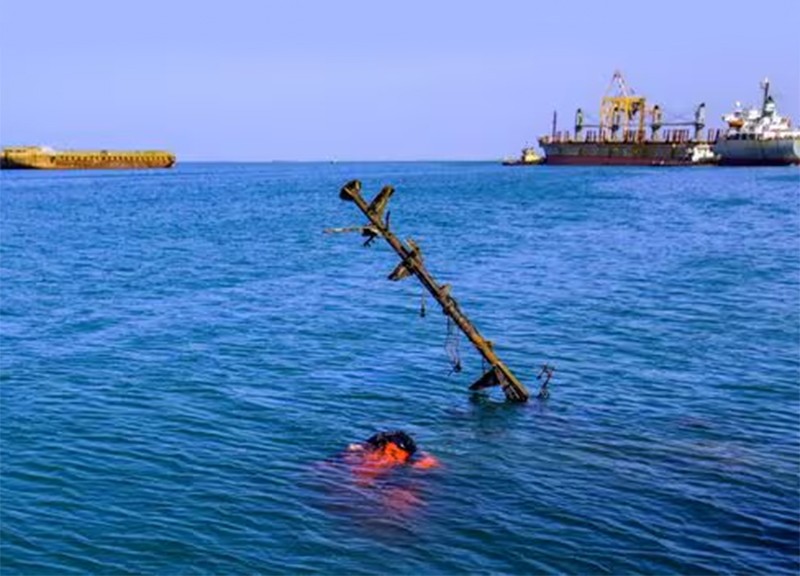
Yemen-based rebels pose threat, and some security analysts say their patrons in Tehran should be in Israel’s crosshairs
By Dov Lieber, Carrie Keller-Lynn and Saleh al-Batati. WSJ.
TEL AVIV-Over the past year, Israel's military has proved adept at taking down threats to the country's security. After the initial shock of the Oct. 7, 2023, attacks, Hamas's top leadership has been largely neutralized. Iran's other big ally in the region, Hezbollah, was set back severely in Lebanon.
Now Israel is setting its sights on the Houthi rebel group in Yemen, who represent a lingering problem, regularly firing missiles at Israel - and it is a problem with few clear ways to handle.
So far, Israel has targeted what it says is energy and transportation infrastructure the Houthis use for military purposes. The next step is to hit the group's top leaders, much as its security forces did with Hamas and Hezbollah.
"We will hunt down all of the Houthis' leaders, and we will strike them just as we have done in other places," Israeli Defense Minister Israel Katz said in late December, following Israel's fourth round of airstrikes against the Houthis since July.
The Houthis, however, present a unique security challenge for Israel because of how distant they are from Israel, a lack of intelligence on the group and the fact that retaliatory airstrikes seem to only inflate domestic support for the group while doing little to stem at tacks. A U.S.-led coalition also has failed to clamp down on Houthi provocations against global maritime shipping.
Yemen is one of the world's poorest countries, and nearly a decade of warfare with a Saudi Arabian-led coalition has done little to deter the group. Indeed, since Israel secured a cease-fire with Lebanon's Hezbollah in late November, the Houthis have become the primary security challenge for Israel in its 15-month-long confrontation with Iranian proxy groups that began after Hamas's Oct. 7, 2023, attacks. In the past weeks, the Houthis have kept up a steady stream of near-daily missile attacks on Israel.
Israel's government is under increasing pressure to respond. The Houthi attacks frequently send millions of people running to bomb shelters and disrupted the return of international airlines that ceased flying to Israel for much of the current war.
But with no clear way to deter Houthi attacks in the short term, some security specialists argue that Israel should ignore the Houthis for now and instead focus on their patron, Israel's long term strategic threat: Iran.
"Against terror from Yemen, our solution lies in Tehran," said Benny Gantz, a former senior official in the current Israeli government, a former defense minister and now a leading opposition figure, in a press conference at the end of December.
Gantz argued that while Israel would be fighting Iran's allies for years, the country now has an opportunity for a "strategic flip" against Iran by fighting it directly.
Corners of the country who argue that Israel should hit Iran say that while it might not fully stop Houthi attacks, it will weaken the group and advance Israel's long-term strategic goal of preventing Iran from weaponizing its nuclear program.
In addition, Iran is uniquely vulnerable at present, said Yoel Guzansky, a former Gulf expert for Israel's National Security Council and now at the Tel Aviv-based Institute for National Security Studies.
The proxy groups Iran seeded to deter attacks from Israel have largely been sub- dued, while Is- raeli airstrikes hobbled Iran's air defenses in October. Israel should take ad- window before Iran and its al- lies can regain their strength, Guzansky said.
And if Tehran retaliates, it would provide cover for Israel to again strike Iran, and potentially its nuclear sites, some security analysts say.
Israel's military, after its most recent strikes in Yemen in late December, called the Houthis an "autonomous ter- rorist group" that relies on Iranian cooperation and fund- ing to carry out attacks.
Israel's best option for a long-term solution to the problem posed by the Houthis might be to focus on building a U.S.-led regional coalition with Gulf countries also threatened by the Houthis' growing aggression, including Saudi Arabia and the United Arab Emirates, some analysts say. This could require Israel to make difficult compromises with the Palestinians.
But acting alone with the Houthis, who have snarled international trade by attacking ships in the Red Sea, Israel risks turning an international problem into its sole responsibility, said Alon Pinkas, a former senior Israeli diplomat.
The reality is that plenty of other governments are seeking to remove the Houthi leadership from its strongholds overlooking the Red Sea shipping lanes. Saudi Arabia would like to see them gone, and officials from Yemen's internationally recognized government, which controls most of the country's territory, have also recently called on a U.S.-led coalition that has also been targeting the rebel group to kill its leadership. Egypt too has taken a significant economic blow thanks to sagging trade through the Red Sea.














